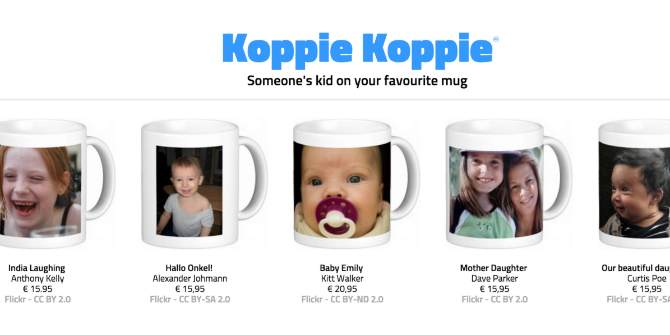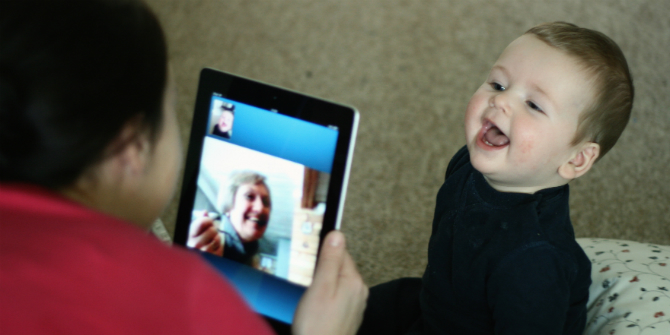 This post reports on the ‘Education in a Digital World’ conference, held in June 2017. Eszter Salamon shows the various changes affecting European education in the digital age, including pedagogical shifts and digital inclusion. She argues that the education system must be fundamentally adjusted to answer to the digital learning needs of the whole population. Eszter is President of the European Parents’ Association and Vice President of the Lifelong Learning Platform. [Header image credit: K. Jarrett_CC BY 2.0]
This post reports on the ‘Education in a Digital World’ conference, held in June 2017. Eszter Salamon shows the various changes affecting European education in the digital age, including pedagogical shifts and digital inclusion. She argues that the education system must be fundamentally adjusted to answer to the digital learning needs of the whole population. Eszter is President of the European Parents’ Association and Vice President of the Lifelong Learning Platform. [Header image credit: K. Jarrett_CC BY 2.0]
The reality of the digital age is finally triggering the changes in formal education settings that research has demanded for at least a decade. The advent of digital media in the classroom has necessitated new teaching practices. What’s more important and exciting is the far-reaching consequences of these changes that are ushering in new pedagogies in European classrooms.
The Lifelong Learning Platform, an umbrella organisation representing formal, informal and non-formal education organisations that represent hundreds of millions of Europeans, recently held its annual conference, ‘Education in a Digital World’. High-level representatives of both the former Maltese Presidency of the EU and the incoming Estonian Presidency attended, signalling a commitment across Europe to ensure that citizens have the necessary preparation and digital skills for the future labour market. The conference dealt with burning issues around digital technology within educational settings, and how the presence of information and technology in our everyday lives indirectly and directly affects education.
Changing roles and needs
Researcher Mart Laanpere described how Estonia has led Europe in terms of digitalisation, but he also catalogued a number of recent controversies. Quoting Michael Huberman’s 1980 article ‘Recipes for busy kitchens’, he noted that ‘educational innovation tends to spend too much time on the spectacular at the expense of the fundamental’, and warned the audience against repeating this pattern with education in a digital world. Laanpere’s message was that both learners and educators have changing roles and needs, as a result of digital technology becoming widespread. However, these changes are not necessarily directly connected to using technology, but they require new forms of pedagogy and support all around:
- In traditional models, teachers had content knowledge and pedagogical capacity as well as direct access to technology (e.g. operating overhead projectors).
- In the new paradigm, the teacher is more likely to need technical assistance provided by the school, or often the students, since students are already very comfortable using digital technology.
- To this extent, the educational process has become a more equal one, where teacher and learner discover and master content together, to a different deep learning outcome.
Gaming and learning
Giving a complementary view from teachers, Steven Stegers talked about the connections between gaming and learning, but warned that teachers need to define desired learning outcomes from the outset. Most formal education providers still focus on test-ready knowledge rather than more complex learning. Stegers introduced the topic by sharing his experience working for EUROCLIO, an organisation for European history teachers. He explained that games like Assassin’s Creed and Call of Duty can be very useful for teaching history, as long as there is guidance accompanying them.
Stegers outlined some of the resources that EUROCLIO provides, along with those of other developers, but warned educators that they should put time into choosing the right resources for their students and not leave the choice up to marketers. He spoke of how well-designed games (even though most of them are war-themed and thus often considered problematic) can offer different ways of engaging, as they value strategic thinking and cooperation over traditional exam-focused education outcomes of quick, instant answers. Yet educators, especially parents as the primary educators of their children, run into issues where some tools that might be useful for learning, such as games, are expensive or otherwise difficult to access.
Digital inclusion
Rather than assuming that all educators, or all students have access to the same digital content and services, Ilse Mariën, a Belgian researcher, presented her research on digital inclusion. Mariën outlined indicators of digital exclusion, as well as the outcomes particular groups/individuals being denied access due to unequal systems or their own personal decision-making. Not everyone engages in digital activities in the same way; there is a huge spectrum of users, from self-imposed digital refusers, to digital ‘all-stars’. As a consequence, Mariën is developing a self-assessment tool to be used by individuals for self-reflection, and by municipalities for digital inclusion policy.
Facing up to the challenges
The conference ended with an interactive Fishbowl session, where plenary participants reflected on controversial (and not always true) statements in the mainstream press, such as reported plans to replace teaching handwriting with typing in Finnish schools. Participants debated equity issues that arise from the early introduction of digital devices, and the pros and cons of BYOD (Bring Your Own Device) policies in schools, which parents have mixed feelings about. When children use their own equipment in schools (pencils, exercise books, sports kit, etc.) the school is not entitled to take their devices away from students in the way they can with transgressions on devices.
While some parents like BYOD because it allows them more transparent access to what happens in school, this must be balanced by equitable measures to help families that cannot afford to buy these devices, so that their children are integrated into school activities. Implementing these measure remains a challenge. For example, the Magellan Project in Portugal was a major success; laptops were provided for just a few hundred Euros, but unfortunately it ended because of the financial crisis.
Formal education needs to be fundamentally transformed to answer the challenges, changing information, knowledge acquisition and lifelong learning needs of the whole population. At the same time, Europe is facing a crisis of an ageing and shrinking teaching force that is often more than reluctant to change their practices as the teachers approach retirement. Methodologies that answer these needs have been present in non-formal education (e.g. in the youth or scout movements). Parents are often more involved using collaborative learning methods that are also applicable in formal education. Are teachers willing and ready to learn from parents and non-formal education providers? Are parents ready to train them? We should all be ready. This is in the best interests of all children.
This post gives the views of the authors and does not represent the position of the LSE Parenting for a Digital Future blog, nor of the London School of Economics and Political Science.





